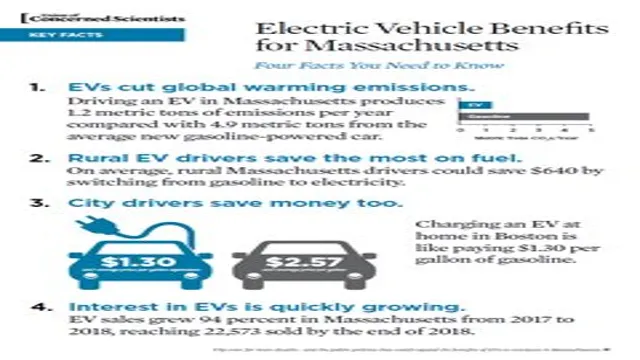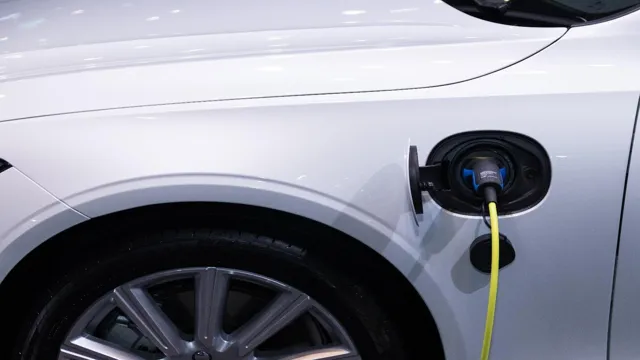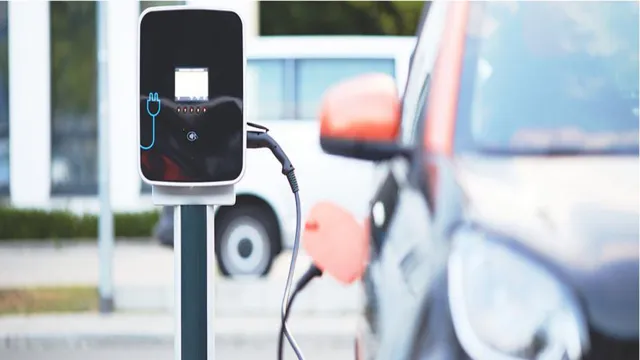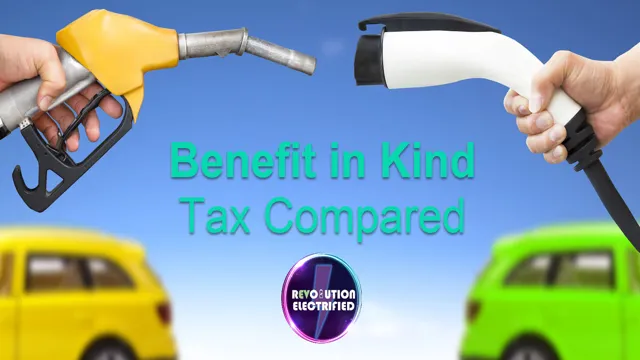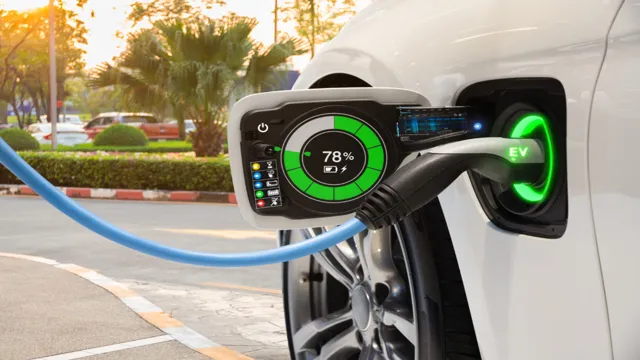Electric Cars: Revving Up Benefits for the Environment
Electric cars have become a popular topic among environmental enthusiasts nowadays. Many people are curious about the benefits of electric cars on the environment. Electric cars run on rechargeable batteries that power an electric motor, which generates the energy required to move the car.
Unlike conventional gasoline or diesel cars, they do not emit harmful pollutants into the atmosphere, making them eco-friendly. In this blog, we will explore the various environmental benefits of electric cars and how they aid in reducing the carbon footprint. The world is facing a crisis where climate change is becoming a severe issue and electric cars offer a glimmer of hope to combat this global issue.
Let us dive into the details and learn about the positive impact of electric cars on the environment.
Lower Emissions
Electric cars have undeniable benefits for the environment. Lower emissions are one of the most significant ways electric vehicles improve air quality. As opposed to traditional gasoline engines, electric cars are powered by electricity, which allows for a decrease in harmful emissions such as nitrogen oxide, particulate matter, and sulfur dioxide.
When you opt for an electric car, it reduces the amount of greenhouse gases released into the atmosphere, lowering the chances of climate change. By driving an electric car, you are not only making a good choice for yourself, but also for the environment and the future of our planet. The long-term benefits outweigh the costs, as electric cars are proven to be more environmentally friendly and contribute to a healthier and more sustainable future.
In conclusion, electric cars are a great way to decrease your carbon footprint while still enjoying the convenience of driving.
Electric cars release fewer greenhouse gases than traditional cars.
If you’re looking for ways to reduce your carbon footprint, switching to an electric car is a smart choice. Electric cars emit fewer greenhouse gases than traditional gas-powered vehicles. According to the US Department of Energy, electric cars produce less than half the amount of greenhouse gases as a gasoline-powered car.
This is because electric cars run on electricity, which can be generated from renewable sources like wind and solar power. On the other hand, traditional cars burn gasoline, which releases harmful pollutants into the air. By choosing an electric car, you’re not only doing your part to reduce emissions but also helping to create a cleaner, healthier environment.
Plus, with advancements in technology, electric cars are becoming more affordable, making it easier than ever to make the switch. So, why not take a step towards a greener future by considering an electric car?
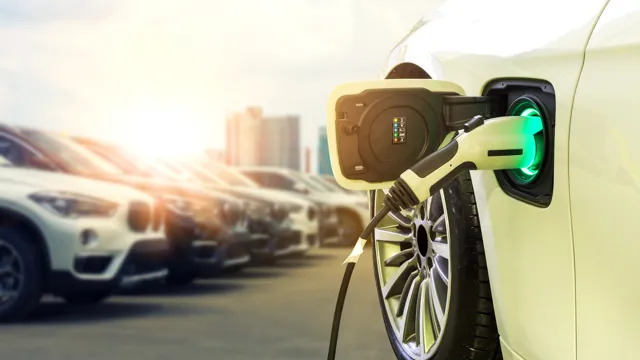
According to the EPA, electric vehicles emit 54% less CO2 over their lifetime.
If you’re looking for a way to reduce your carbon footprint, then electric vehicles might be a great option for you! According to the EPA, electric vehicles emit 54% less CO2 over their lifetime compared to traditional gas-powered vehicles. This is because electric vehicles don’t produce tailpipe emissions like gas-powered cars do. But the benefits don’t stop there.
Electric cars can also reduce emissions associated with the production of gasoline and diesel fuel. In addition to being environmentally friendly, electric cars offer several other benefits, such as lower fuel costs and reduced noise pollution. So if you’re in the market for a new car, consider going electric and doing your part to lower emissions and protect the environment.
Reduced Pollution
When it comes to the environment, one of the biggest benefits of electric cars is their reduced pollution. Unlike gas-powered vehicles, electric cars emit no tailpipe pollutants. This means that they don’t release harmful pollutants such as carbon dioxide, nitrogen oxides, sulfur dioxide, and particulate matter, which can have a negative impact on our health and the environment.
Additionally, electric cars are powered by energy from renewable sources such as wind and solar power, which further reduces their carbon footprint. By driving an electric car, you can help to reduce air pollution and combat climate change, all while enjoying the convenience and savings that come with electric vehicles. So, why not make the switch today and start enjoying the many benefits of electric cars towards the environment?
Electric cars produce less air pollution than gasoline cars.
Electric cars are a much smarter choice for the environment compared to traditional gasoline cars. When it comes to reducing air pollution, electric cars are unbeatable. They produce significantly less air pollution, especially greenhouse gases which are the primary contributors to climate change.
In fact, studies have shown that electric cars release up to three times fewer greenhouse gas emissions than gasoline cars. So, driving an electric car reduces overall air pollution and improves air quality, which is essential for public health. By making the switch to electric, we can reduce our carbon footprints and contribute to a cleaner, greener planet.
So why not make the change today? Your wallet and the planet will thank you in the long run.
They emit zero tailpipe pollutants, helping to improve air quality and public health.
Electric vehicles have revolutionized the automotive industry by reducing pollution and improving air quality. Unlike traditional vehicles that emit harmful pollutants, such as carbon monoxide, nitrogen oxides, and particulate matter, electric vehicles emit zero tailpipe pollutants. This means that they have a significant impact on improving air quality and public health.
As more people switch to electric cars, we can reduce our dependence on fossil fuel and decrease the amount of pollution we produce. With rising levels of air pollution, switching to an electric vehicle is a small step we can take to contribute to a cleaner and healthier environment. Moreover, electric vehicles are not only eco-friendly but also cost-effective in the long run.
Although the initial cost of an electric vehicle may be higher than a combustion engine, they save money in the long run by reducing fuel costs and requiring less maintenance. It’s truly a win-win for both the environment and our wallets.
Study showed that if all cars were electric, air pollution-related deaths could drop by over 70%.
Reduced Pollution Did you know that air pollution causes over 7 million deaths each year? It’s a staggering figure, but there’s hope. A recent study showed that by transitioning to electric cars, we could reduce air pollution-related deaths by over 70%! This is because electric cars produce no emissions, unlike their gas-guzzling counterparts. Imagine all those smog-filled streets becoming clean and clear, with people no longer having to wear masks just to breathe comfortably.
It’s a future we should all strive towards. And it’s not just people who benefit. Wildlife, plants, and ecosystems would all benefit too.
So next time you’re in the market for a new car, consider going electric. It’s a decision that could truly make a difference in the world.
Energy Efficiency
Electric cars provide numerous benefits to the environment due to their energy efficiency. Unlike traditional gas-powered cars, electric cars use electric motors that require less energy to operate. This means they emit fewer greenhouse gases, reducing air pollution and combatting climate change.
Additionally, electric cars are more efficient in their energy use, meaning they can travel further distances on less energy, which not only saves drivers money in gas costs, but also reduces the demand for fossil fuels. Investing in electric cars is a small step individuals can take towards creating a healthier planet for future generations. By utilizing the benefits of energy efficiency, electric cars can help reduce our carbon footprint and preserve the environment.
Electric cars use energy more efficiently than gasoline cars.
Electric cars are more energy-efficient than traditional gasoline-fueled cars. This is because electric cars convert more of their energy into motion than gasoline cars. Gasoline cars waste a lot of energy by producing heat and sound, while electric cars use all of their energy to power the car’s electric motors.
The batteries that power electric cars are also becoming more efficient and can now go further than ever on a single charge. This means that electric cars are not only better for the environment but also more practical for everyday use. Additionally, electric cars can charge from renewable energy sources like solar and wind, making them even more sustainable.
Investing in an electric car is a smart decision for people who want to save money on gas, reduce their carbon footprint, and drive a vehicle that is better for the environment. So, if you’re in the market for a new car, consider going electric and experience the benefits of energy efficiency first hand.
Electric vehicles have an efficiency of around 60%, while traditional cars are only around 20%.
When it comes to energy efficiency, electric vehicles come out on top. They have an efficiency rating of around 60%, which means that they convert 60% of the energy stored in their batteries into movement on the road. Traditional petrol or diesel vehicles, on the other hand, are only around 20% efficient.
This means that only 20% of the energy in the fuel is actually used to move the car. The rest is lost as heat, friction or other forms of waste. Think about it like this: it’s like pouring water into two different glasses.
One glass has a smaller hole, so more of the water stays in the glass. The other glass has a bigger hole, so more of the water spills out. Electric vehicles have a smaller hole, so more of the energy stays in the car.
This means that they require less energy to travel the same distance as a traditional car. There are several reasons why electric vehicles are more efficient. Firstly, they use regenerative braking, which captures kinetic energy that is normally lost when a car brakes.
Secondly, electric motors are more efficient at converting energy into motion than traditional combustion engines. Finally, electric cars are lighter than traditional cars, which means that they require less energy to move. So, if you’re looking for an energy-efficient vehicle, an electric car is definitely worth considering.
Not only will it save you money on fuel costs, but it will also help to reduce your carbon footprint.
Conclusion
In conclusion, the shift towards electric cars is not just a trendy fad, it’s a necessary step towards a more sustainable future. These silent speed demons might not have the same throaty roar as their gasoline-powered counterparts, but they more than make up for it in their benefits to the environment. With zero emissions and energy-efficient technology, electric cars are a breath of fresh air for our planet.
So, let’s ditch the gas-guzzlers and rev up the electric vehicles, because saving the environment has never looked so cool.”
FAQs
What are the environmental benefits of owning an electric car?
Electric cars emit zero exhaust emissions, reducing harmful air pollution that contributes to climate change.
How do electric cars contribute to reducing greenhouse gas emissions?
Electric cars produce significantly fewer emissions than traditional gasoline-powered cars, contributing to the reduction of greenhouse gas emissions.
Are electric cars more energy-efficient than gas-powered cars?
Yes, electric cars are significantly more energy-efficient than traditional gas-powered cars. They also require less maintenance, reducing their overall carbon footprint.
What is the impact of electric cars on renewable energy use?
Electric cars can help support the use of renewable energy sources, as they can be charged using solar energy or other forms of renewable energy. This reduces dependence on fossil fuels and supports the transition to a more sustainable energy future.
